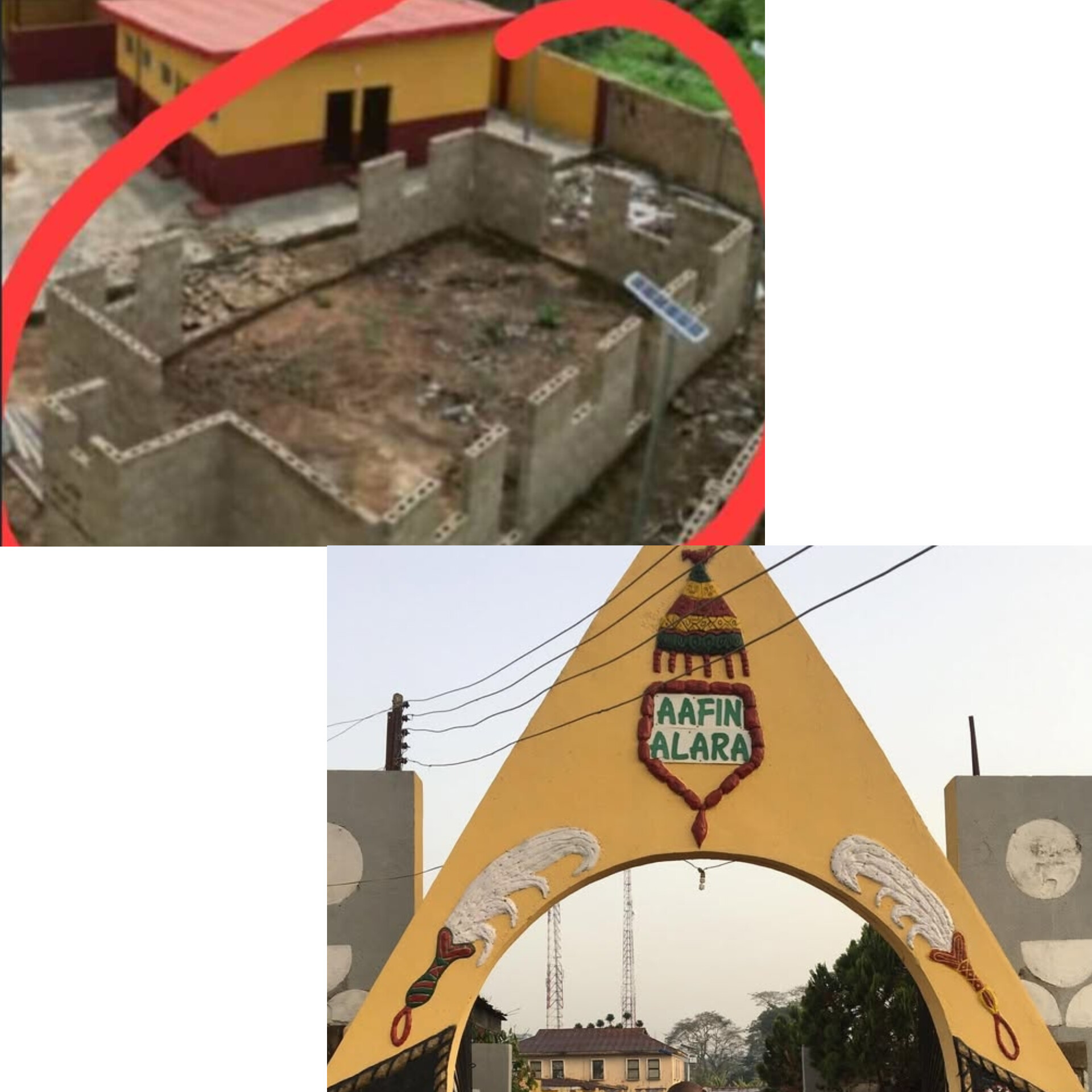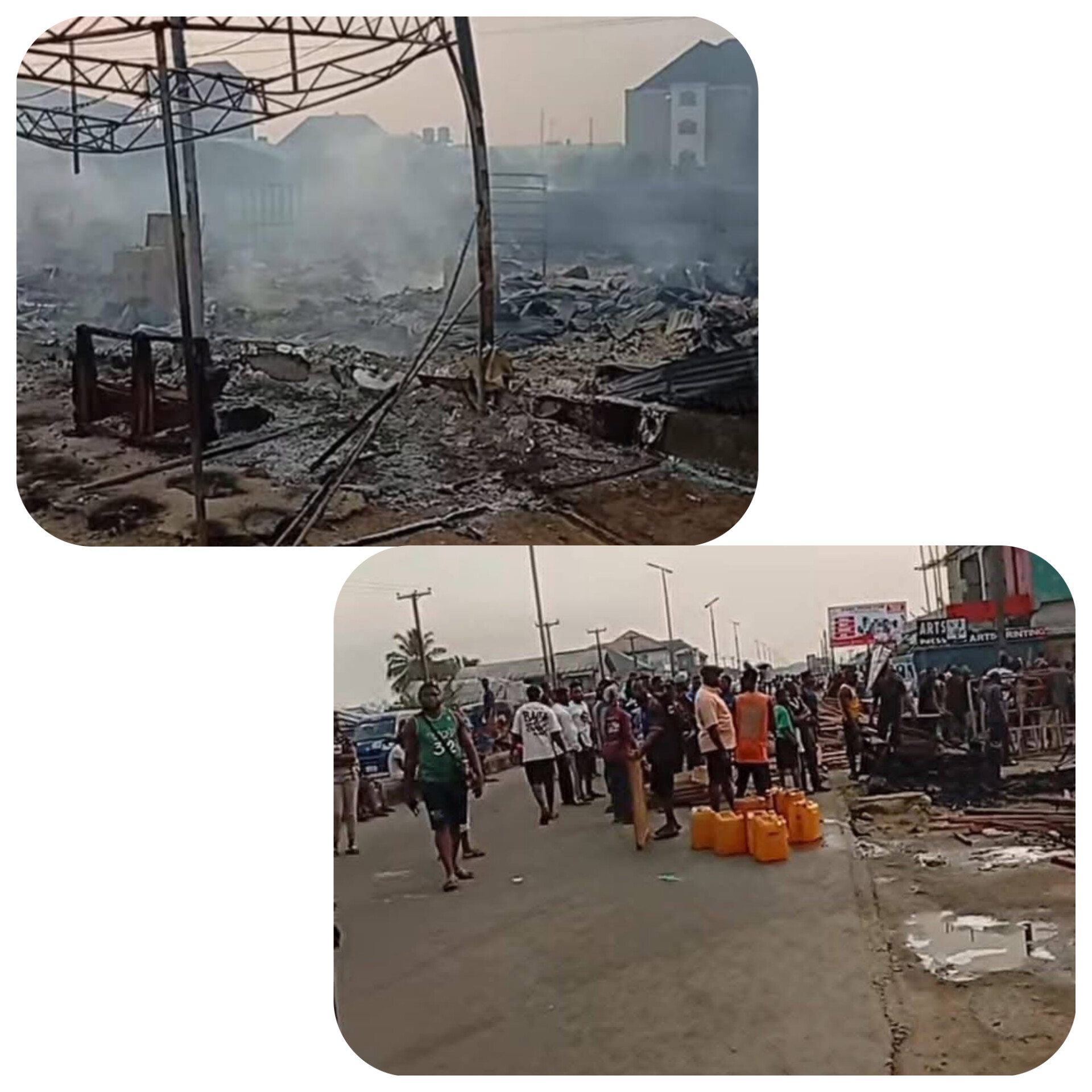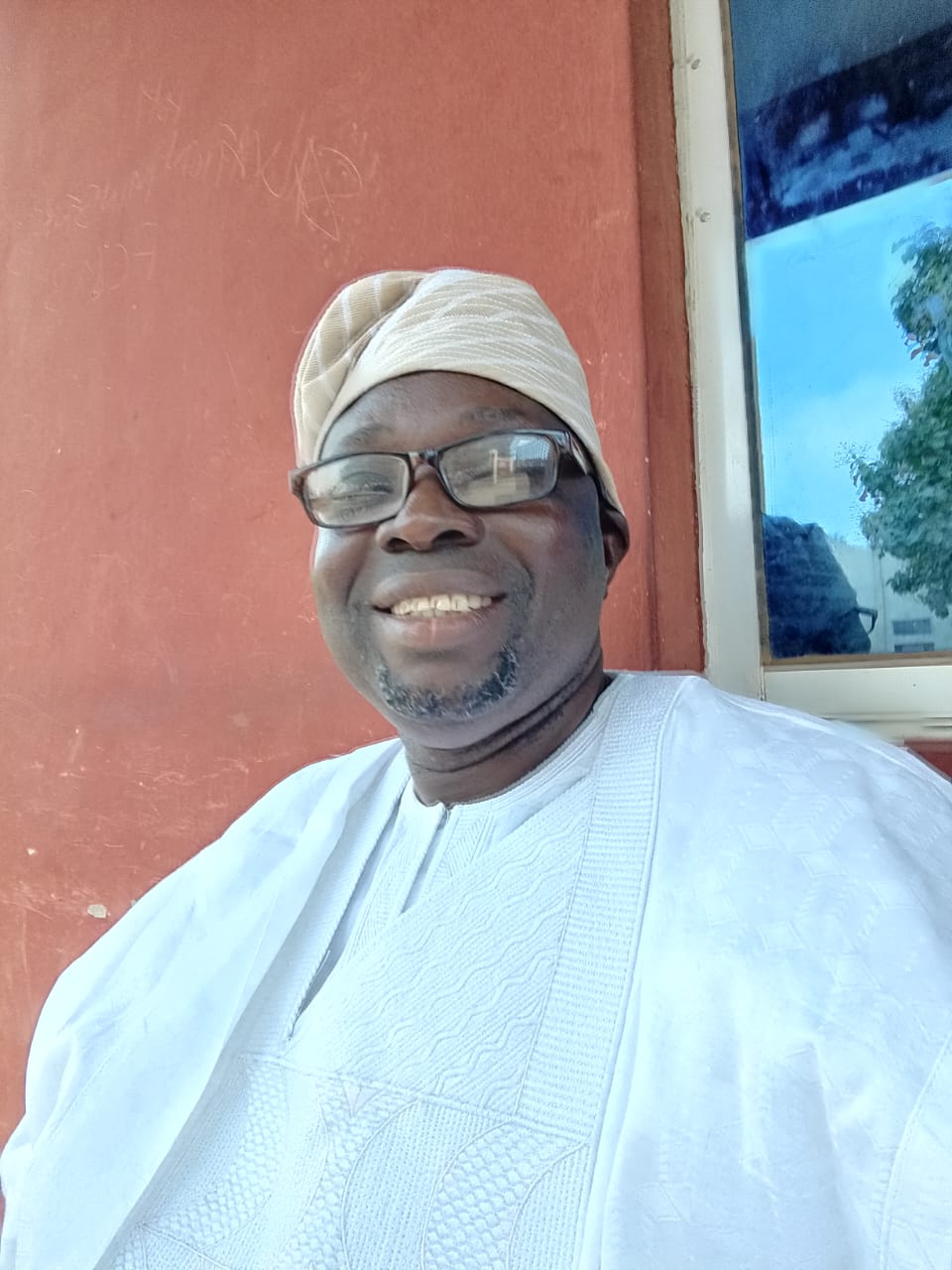Religious tensions in Aramoko-Ekiti: Muslim Community decries demolition of two Mosques in six months By Khadijat Idowu

Religious tensions in Aramoko-Ekiti: Muslim Community decries demolition of two Mosques in six months

In a troubling turn of events, the Muslim community in Aramoko-Ekiti has witnessed the demolition of two mosques within six months, raising concerns about religious tolerance and the management of public spaces by local authorities.
It is a well-known fact that mosques are traditionally built near marketplaces to enable worshippers easy access to their places of devotion.
This practice, rooted in history and convenience, makes the recent demolitions even more distressing for the Muslim faithful in the town.

The question arises: why is the Muslim community being subjected to such treatment, even in their own fatherland?
“On Wednesday, March 26, a combined security force led by the Chairman of Ekiti West Local Government, Hon. Moses Omojola, his Vice, Hon. Isaac Fatoyinbo, and a former Deputy Speaker of the Ekiti State House of Assembly, Rt. Hon. Gbenga Odebunmi, stormed the Sabo area of Aramoko-Ekiti.
Accompanied by mobile policemen and members of the Amotekun Corps, they arrived with a stationed bulldozer.

” Without hesitation, the order was given, and the machine roared to life, reducing a modern mosque, still under construction to rubble.
“Before the Chief Imam of the town, Sheikh Abdulraheem Bamigbola, and other mosque promoters could react, the structure was gone.
This marked the second mosque demolition in the area within six months, despite repeated appeals to the Alara-in-Council and the Aramoko Development Association to spare the new structure.
“The dispute began when the Alara-in-Council informed the Muslim community of the need to vacate the existing mosque at Sabo to make way for a public project.
Senate Leader, Senator Opeyemi Bamidele, had decided to build a modern market on the site, a development initially welcomed by all, including the Hausa-Fulani residents of the area.
Following this directive, the Chief Imam met with the Hausa community, and within 24 hours, they vacated the mosque to allow the market project to proceed. The mosque was subsequently demolished.
“Months later, as construction of the market neared completion, the Muslim community sought permission to relocate their mosque a few metres away.
” This request was granted in a meeting attended by prominent chiefs, including the Alara of Aramoko-Ekiti, Oba Adegoke Olu-Adeyemi, and other high-ranking traditional leaders.
Official approval in hand, work commenced on the new mosque, proceeding without objections for weeks.
However, just as the structure was about to be roofed, opposition arose from a group of local elites who deemed the location inappropriate.
“What began as a minor concern quickly escalated into a heated debate across Aramoko’s public platforms.
Strikingly, no one acknowledged that a mosque had stood in that exact spot alongside the market for over 50 years.
“Initially an open prayer ground, the Muslim community, with the palace’s approval, had constructed a proper mosque there 12 years ago.
“As tensions mounted, a message was sent to the Muslim community stating that the town had not yet decided whether the mosque would be allowed.
” A ‘Stop Work’ inscription soon appeared on the building. This led to a series of meetings between Muslim leaders and the Alara-in-Council.
” On Sunday, March 23, a representative of the Alara-in-Council and the Aramoko Development Association delivered what appeared to be a final decision: a demarcation should be built between the market and the mosque, and the mosque’s entrance should not face the market.
Despite the additional costs, the Muslim community accepted these terms.
However, in a sudden and unexplained reversal the following day, a new directive was issued: the mosque must be demolished.
“Confused and dismayed, the Muslim community convened to draft a letter of appeal to the Alara-in-Council and other relevant authorities.
“On March 24, just as the letter was about to be submitted, another message arrived.
“This time, the town’s leadership stated that the mosque would be allowed to remain. The council even assured them it would handle the demarcation itself, expressing regret for the distress caused.
Relieved, the Chief Imam and other leaders advised against submitting the appeal letter, instead opting to draft a letter of appreciation.
Unbeknownst to them, this reassurance was merely a ploy to prevent them from seeking legal redress or appealing to Senator Bamidele or Governor Abiodun Abayomi Oyebanji.
“Days later, as preparations began for the market’s grand opening, the Muslim community was dealt a devastating blow, their mosque had been demolished.
“No explanation. No consideration for the resources spent. No offer of compensation. Despite this provocation, the Muslim leadership maintained their stance against violence. Even as the bulldozer moved in, they urged restraint to prevent a breakdown of law and order.
At the market’s official commissioning, the Muslim community hoped for words of consolation or reassurance. None came. Their loss was ignored.
“This episode has left a bitter message for the Muslim community in Aramoko-Ekiti: they remain vulnerable and treated as second-class citizens in their own town.




